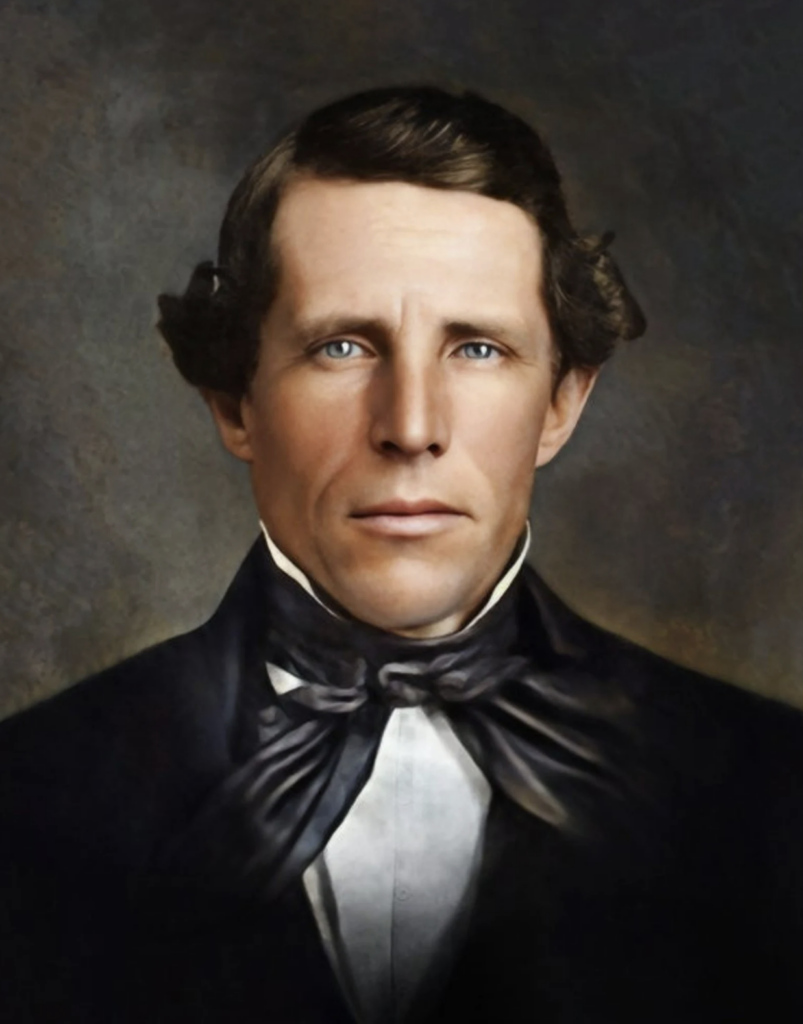
Joseph Smith Jr. (1805-1844) founded the Church of Jesus Christ of Latter-day Saints, also known as the Mormon Church. To date, the LDS church has a net worth of $100 billion and growing.
Born in Sharon, Vermont, Smith’s life was marked by a series of extraordinary events and controversies that shaped the development of Mormonism. This article provides an in-depth look at Smith’s life, including his treasure hunting, false claims, occult practices, hidden polygamy, the controversies surrounding his Egyptian translations, his political ambitions, and the circumstances leading to his death.
Early Life and Treasure Hunting
Born on December 23, 1805, to Joseph Smith Sr. and Lucy Mack Smith, the family moved to Palmyra, New York, in 1816 and later to nearby Manchester in 1819. The Smiths faced financial difficulties and were involved in treasure hunting, a popular activity then. Joseph Jr. gained a reputation as a “seer” or “scryer,” claiming he could locate buried treasure using a seer stone. While Smith’s treasure-hunting activities were unsuccessful, they would later influence his religious revelations and the development of Mormonism.
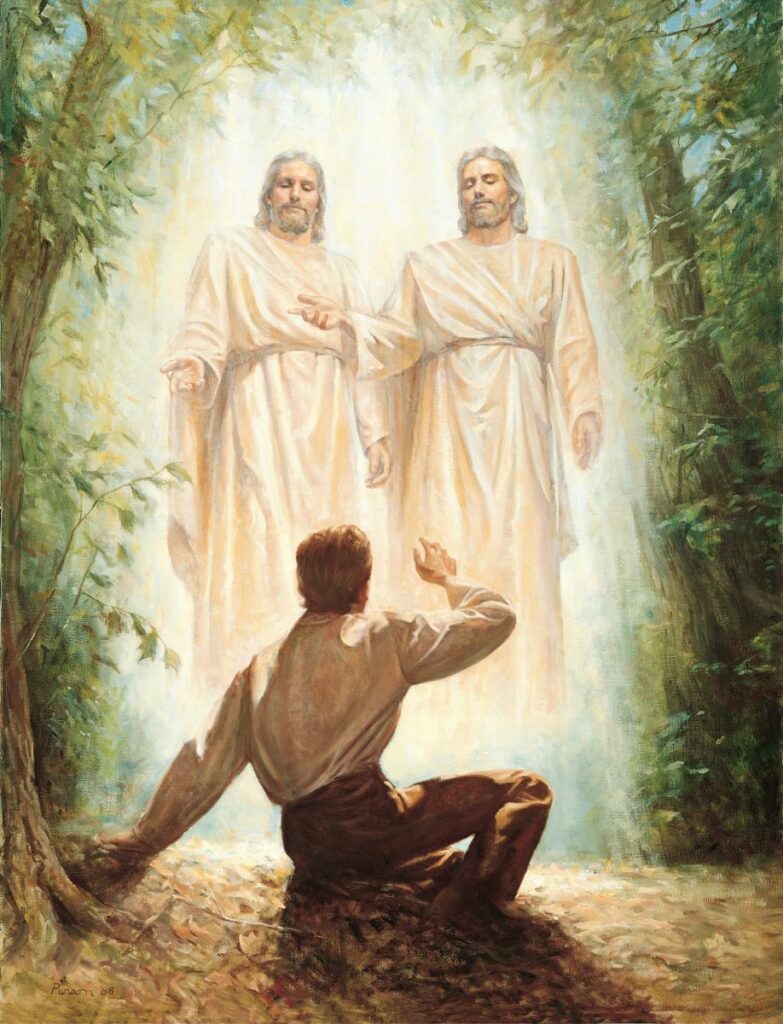
Religious Revelations and the Book of Mormon
At 14, Smith claimed to have had a vision of God the Father and Jesus Christ in 1820. He reported that they told him all existing Christian denominations were corrupt and that he would be chosen to restore the true Church. In 1823, the angel Moroni allegedly visited Smith, revealing the location of a set of golden plates containing the history of ancient American peoples. Smith claimed to have translated the plates using his seer stone, resulting in the Book of Mormon, published in 1830. This text would become the foundation of the Mormon Church.
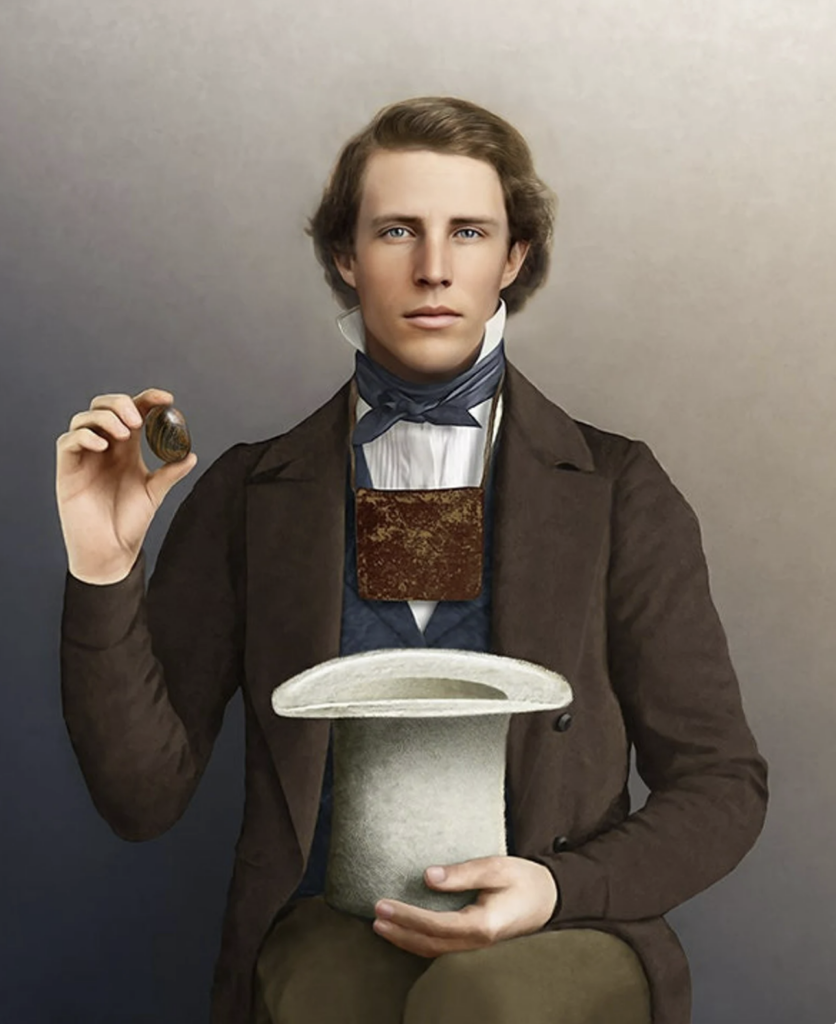
Occult Practices
Smith’s involvement in occult practices, particularly during his treasure-hunting days, has been criticized. The use of seer stones, divining rods, and his purported association with “folk magic” are cited as evidence of his occult interests. While these practices may have been common in the early 19th century, they remain points of contention for those skeptical of Smith’s religious claims.
Polygamy and Controversy
Polygamy played a significant role in early Mormonism, with Joseph Smith as a central figure in its practice. Although he publicly denied engaging in polygamy, historical records, and personal accounts suggest Smith secretly married up to 30 women, including some already married to other men and some as young as 14. Smith’s practice of polygamy was a significant source of controversy during his lifetime and remains a divisive issue within the Church and among historians.
The Book of Abraham and Egyptian Translations
In 1835, Joseph Smith acquired a collection of Egyptian papyri and claimed to translate one of them as the Book of Abraham, a work included in the LDS canon. Modern Egyptologists have examined the surviving fragments of the papyri and determined that Smith’s translation does not resemble the original Egyptian text. This discrepancy has led to questions about Smith’s credibility and the authenticity of his other translations, including the Book of Mormon.
Political Ambitions: Mayor, Army Commander, and Presidential Candidate
Joseph Smith was an ambitious and politically active individual. In 1841, he was elected mayor of Nauvoo, Illinois, a city founded by the Mormons. Smith also formed the Nauvoo Legion, a local militia he was the commander. In 1844, he launched a campaign for the presidency of the United States, advocating for the protection of religious freedom and the abolition of slavery.
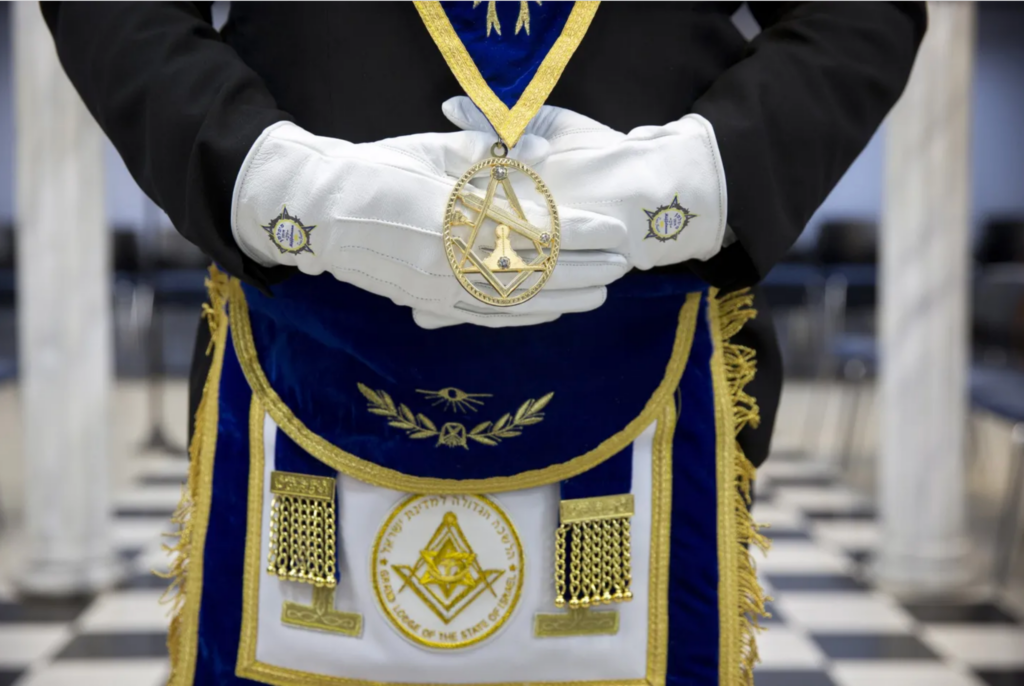
Joseph Smith’s Involvement with Freemasonry
Joseph Smith’s connection with Freemasonry began in the early 1840s. Many early Mormon leaders, including Smith’s brother Hyrum, were already Freemasons. In March 1842, Joseph Smith was initiated into the Masonic Lodge in Nauvoo, Illinois, and quickly advanced through the first three degrees, reaching the status of Master Mason.
While it is difficult to determine how much Freemasonry influenced Mormon practices, the two organizations have several notable similarities.
Rituals and Symbols: The most apparent influence of Freemasonry on Mormonism is found in the rituals and symbols associated with the LDS Church’s temple endowment ceremony. The endowment, a sacred rite performed in LDS temples, shares similarities with Masonic rituals, such as secret handshakes, gestures, and passwords. Both organizations also strongly emphasize symbolism, with certain symbols, like the square and compass, appearing in both Masonic and Mormon contexts.
Organizational Structure: The hierarchical structure of the LDS Church, with its various offices and quorums, also resembles the structure of Freemasonry. Both organizations have a graded progression system, with members advancing through different degrees or levels.
Moral and Ethical Teachings: Although the LDS Church’s religious teachings and Freemasonry’s moral philosophy differ in many respects, there are some common themes. Both organizations encourage their members to strive for personal improvement, integrity, and high moral standards. It is possible that these shared values helped shape some of the ethical and moral teachings of early Mormonism.
The Nauvoo Expositor and Smith’s Death
In 1844, a group of dissenting Mormons in Nauvoo published the first and only issue of the Nauvoo Expositor, a newspaper criticizing Smith’s teachings, his political power, and his practice of polygamy. Smith, as mayor, ordered the destruction of the printing press, an act that fueled tensions between Mormons and non-Mormons in the area.
As tensions escalated, Smith and his brother Hyrum were arrested on charges of inciting a riot and were jailed in Carthage, Illinois. While awaiting trial, a mob of armed men stormed the jail on June 27, 1844. In the ensuing violence, Joseph and Hyrum Smith were killed. Joseph Smith was 38 years old at the time of his death.
Smith’s death marked the end of his controversial and eventful life, but it also solidified his status as a martyr in the eyes of his followers. The Church of Jesus Christ of Latter-day Saints has since grown into a global faith, and Joseph Smith remains a central figure in its history.
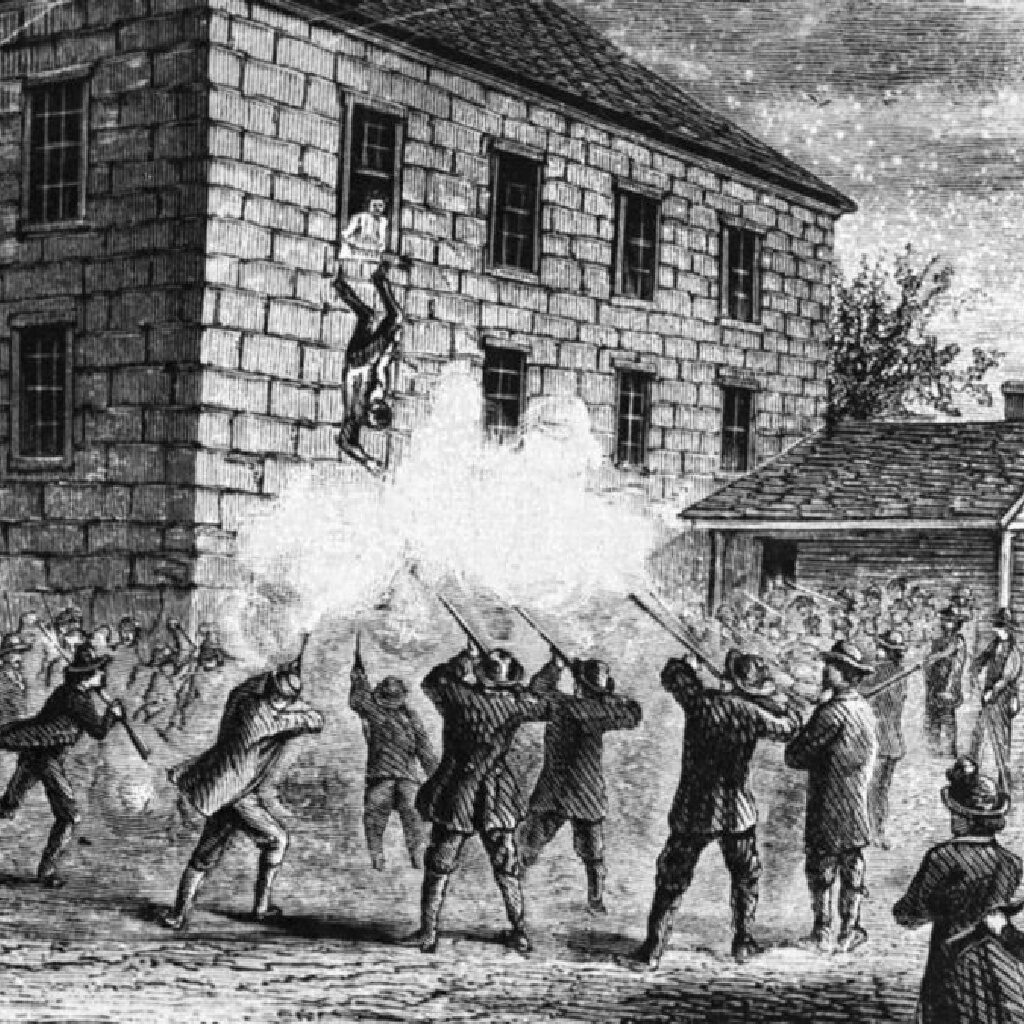
Final Words
Joseph Smith was murdered by an angry mob while in jail. While Smith and his companions began to be riddled with gunfire, eyewitnesses claim to have heard him yell, “O Lord, my God!”
This was the first part of the known Masonic call of distress,’ O Lord, my God, is there no help for a widow’s son?’ When heard, Masons must come to their fellow members’ aid. He could not finish the rest of the distress call, and no one came to his aid.
To learn more, see the Becoming Outlaws episode, ‘Mormonism 101 with Lynn Wilder.’
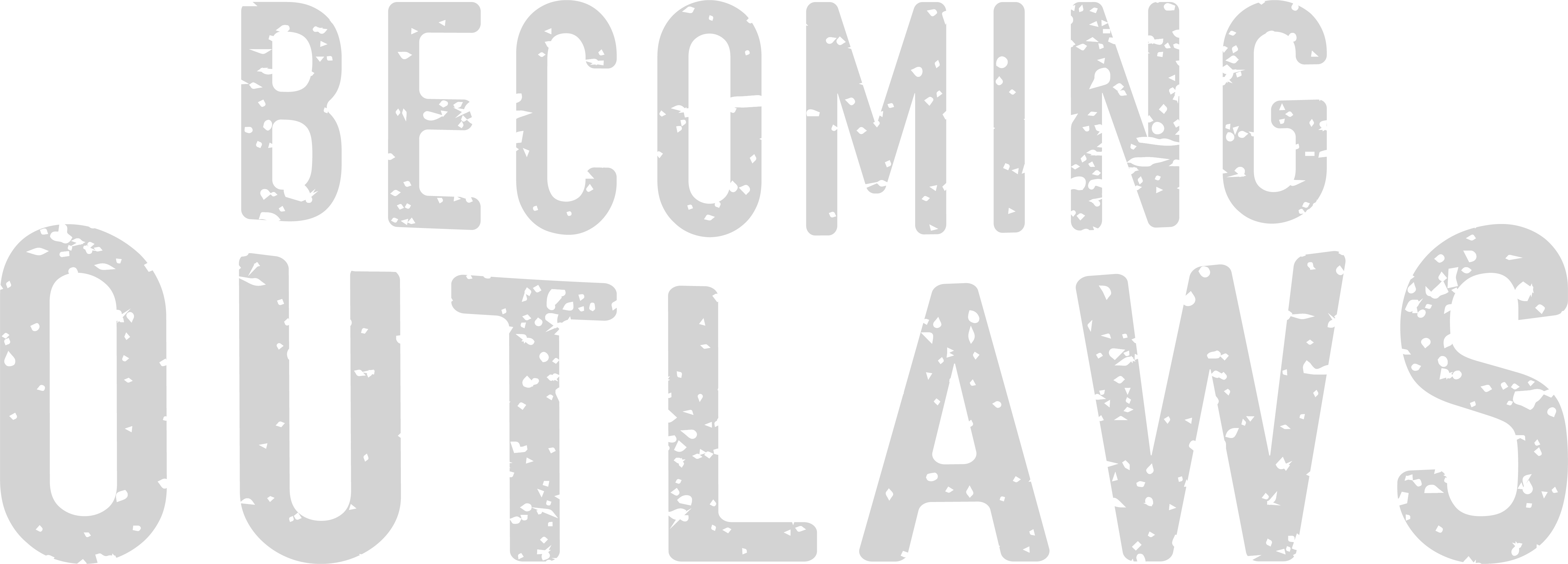
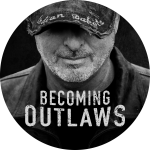
Reader Interactions